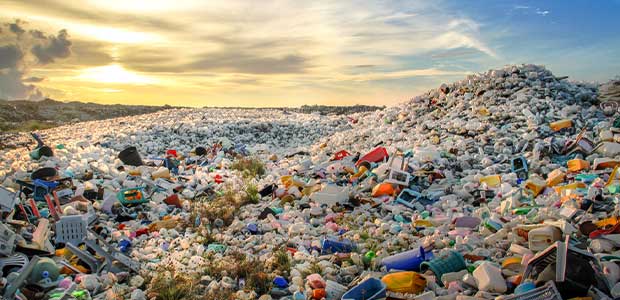
Research Finds Half of Single-Use Plastic Waste is Produced by 20 Companies
Researchers and U.S. leaders plan to take action before the problem escalates further.
- By Shereen Hashem
- Jun 08, 2021
In the next five years, single-use plastic production is projected to grow by 30 percent. This is fueling the contribution to global warming and ocean pollution, according to researchers who published a list of companies that manufacture and fund throwaway plastic.
Around 20 companies were calculated as the source of half of the world’s single-use plastic waste. This was conducted by the Plastic Waste Makers Index published by the Australia-based philanthropic Minderoo Foundation. Single use plastics, such as face masks, medical equipment, shopping bags, coffee cups and cling film are made from polymers, which use fossil fuels as a base material.
According to an article, in 2019, 130 million metric tons of single-use plastics were thrown away around the world, with 35 percent burned, 31 percent buried in managed landfills and 19 percent dumped on land or into the ocean.
An index used a range of data to track the flow of single-use plastic materials through their life cycle. This ranged from polymer form to finished goods to waste. It estimated where they were produced, converted, consumed and disposed of.
ExxonMobil generated 5.9 million tons of single-use plastic waste in 2019. The company made a comment saying it "shares society's concern about plastic waste and agrees it must be addressed.” The company plans to take action by increasing recyclability, backing efforts to recover more plastic waste and working on advanced recycling solutions that could help lower greenhouse gas emissions linked to products.
The report stated nearly 60 percent of the commercial finance for the single-use plastic industry comes from 20 global banks that have loaned almost $30 billion for polymer production since 2011.
Former U.S. Vice President Al Gore said the plastic and waste crises are intertwined with the atmosphere being an “open sewer” for planet-heating emissions and the ocean like a liquid landfill for plastic waste. As the electricity and transport sectors become clean energy, companies that extract and sell fossil fuels are trying to expand their petrochemicals market, three-quarters of which is plastic production.
Estimations of the carbon footprint of plastic indicates the life cycle of single-use plastics accounted for about 1.5 percent of global greenhouse gas emissions in 2019, with polymers as the main contributor. Single-use plastics could be responsible for five to ten percent of annual greenhouse gas emissions by 2050.
According to an article, the Minderoo Foundation said petrochemical companies should be required to disclose their “plastic waste footprint and commit to producing plastics from recycled waste rather than fossil fuels.”
Sam Fankhauser, professor of climate change at the University of Oxford, said “making clear the roles different companies play in the plastics value chain was important because most pressure so far has centered on retailers.”
Fankhauser said transparency and disclosure are key for companies and banks in their involvement for producing single-use plastic. Companies should encourage consumers and shareholders to “start pushing for action, as seen with climate change.”
About the Author
Shereen Hashem is the Associate Content Editor of Occupational Health & Safety Magazine.